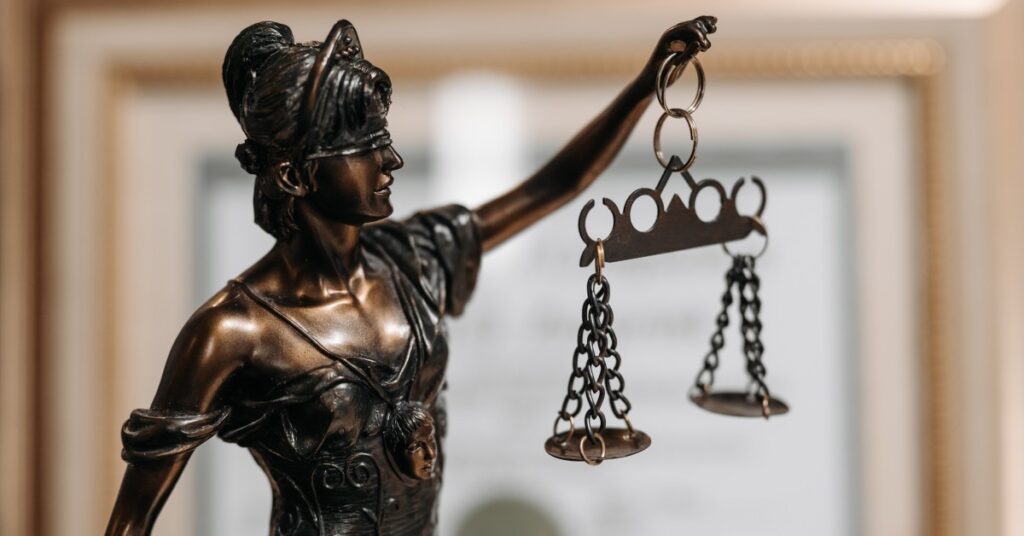
What Jobs Can You Get With a Master's in Homeland Security?
Homeland security involves more than patting down travelers whose metal [...]

Year after year, as applicants begin work on their law school applications, they struggle to try to make themselves stand out among thousands of other qualified applicants.
What can prospective students do to illustrate that they are special and smarter than the competition? What will convince admissions committees that they are the ones who should be offered the coveted seats in the entering class?
In addition to putting together a tight, concise, and attractive résumé, and paying careful attention to each application question so that your answers are responsive and complete, you have the opportunity to show what makes you unique — or “special” — in your personal statement.
This essay is the vehicle through which you may shed light upon yourself as a person, over and above what is reflected in your résumé and academic record, both of which probably look very similar to many others.
Your statement should have a theme, tell a story, and leave your readers feeling that you are an interesting, intelligent, and insightful person. It should tell admissions officers that you know where you have been and where you are heading; that you have the ability, intellect, and maturity to succeed in the study of law; and that you will add something positive to their law school communities and to the legal profession.
You want to grab the attention of committee members in your first sentence; you want to keep their attention, both with the content of your story and clear, skillful writing. And when they finish reading your statement, you want them to want to have a conversation with you.
The best personal statement shares insights about you, based upon your experiences and self-reflection. It builds from and enhances the rest of your application package.
| University and Program Name | Learn More |
|
The George Washington University:
Master of Studies in Law
|
One personal statement I particularly enjoyed was a story about how the applicant loved to bake. She had developed and mastered certain cake recipes through trial and error — and persistence. She had started her own bakery and grown it into a successful business.
She used this story as a case study, a way of exemplifying the precision with which she approaches her work. The essay showed that she is attentive to detail and always strives for perfection while accepting that some failures along the way are inevitable. She concluded the piece by explaining how her experiences with the baking business — and the skills and strengths she had developed through it — would help her excel in legal studies. Her story was well-written, interesting, provided some nice imagery, and was different from many others.
Another very strong statement I read was from a young man discussing his service during a faith-based mission in South America. He recounted the trials and tribulations that accompanied living in a foreign country where he felt unwelcome. He went on to describe how — eventually — he was able to win over people in the community.
This applicant used specific examples of interactions in which both he and others opened their minds and hearts to learn more about each other. He explained how his notions of tolerance and acceptance had changed, how his spirituality and character grew during his mission, and how, during his time in South America, he had come to realize that he wanted to devote his professional life to serving others through a career in the law. His commitment was genuine, and that came across immediately.
What you should not do is grab attention in a negative way. Some of the most memorable statements I read during my many years as an admissions dean did just that, and demonstrated extremely poor judgment on the part of applicants in the process. These essays were game changers for applicants who otherwise would have been admitted.
One example came from a young woman who discussed traveling with her college track team and going to a male strip club. In excruciatingly graphic detail, she described the behavior of her friends and the anatomies of the male dancers. The whole admissions committee wondered the same thing: What was she thinking?
Another example came from a young man who discussed how unique he was because he had excelled in his college studies and was much more intelligent than any other person who was applying to law school. He used complex sentences and multisyllabic words very excessively. He concluded his statement by letting the admissions committee know that he fully expected to be offered admission to all of the top-tier law schools, and that he would only consider attending this particular institution if he were offered a full-tuition scholarship — a housing stipend would be nice as well. Arrogance has no place in personal statements.
And do not be “too personal.” Discussing details of your parents’ ugly divorce is, in most cases, inappropriate for an audience of strangers. Admissions committees do not need to know about your family members’ extramarital affairs or their ugly battles over money.
A better approach for someone in this situation would have been to discuss the lack of attention she received from her parents while they were going through their divorce. This applicant might then have discussed the ways that this challenging family situation affected her growth and development, and her eventual maturation into an independent adult.
Other approaches to avoid are writing your own obituary — “Applicant X died on January 1, 2076, after serving as Attorney General, as well as Chief Justice of the United States Supreme Court and President of the United States, over the course of his career.” Another bad idea is to present your personal statement as a legal pleading: “Here comes before the court applicant X and moves her admission to law school Y and, in support hereof, states the following….”
Further suggestions: Do not write a poem for your personal statement, and do not write your essay in the third person. Trying to show you are different because you are outrageous or ridiculous is not a convincing approach if you want to be taken seriously as an applicant.
What does work best when it comes to writing your personal statement is being yourself, exposing your good qualities, strengths, character, and passions. Law schools want to build classes of talented, interesting, and likeable individuals. Show admissions committees you are one of these people in a well-written and thoughtful essay; and communicate to them that you are a serious candidate who has the maturity, ability, and drive to excel in law school and in the practice of law.
Questions or feedback? Email editor@noodle.com

Homeland security involves more than patting down travelers whose metal [...]

Master's in homeland security degree programs are relatively new; the [...]

Graduates of both criminal justice and homeland security advanced degree [...]

From criminal justice to policy and human rights, these fields [...]

From LSAT tips to can't-miss lectures from law school faculty, [...]
Categorized as: Law & Legal Studies, Criminal Justice & Legal Studies